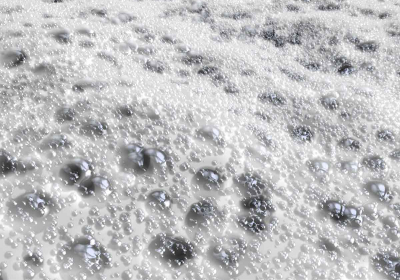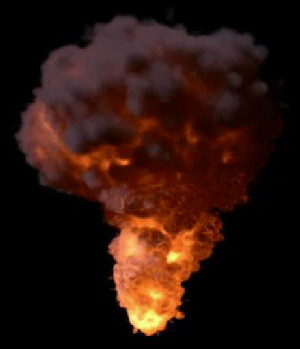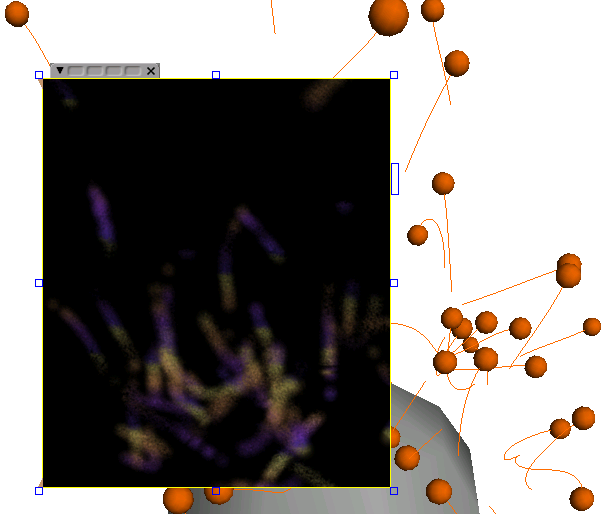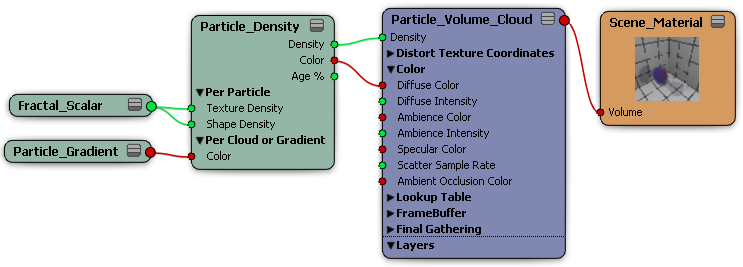The Particle Density shader renders noise functions as density fields to create clouds, fireballs, smoke etc. The resulting density field can be shaded using a variety of different shading algorithms to produce incandescence, scattering, and other volumetric effects.
You use the Particle Density shader in conjunction with the Particle Volume Cloud shader. The Particle Density shader helps define each particle's shape within the point cloud's volume so that the point cloud doesn't look like a single volumetric mass.

|

|
On the left, bubble shapes in foam created using bubble density and falloff with the Particle Density shader.
On the right, billowing smoke created with the help of the Particle Density shader.
You can also use the Strand parameters of the Particle Density shader for rendering strands (trails) that follow behind a particle. You can set a fade-in and fade-out length for the strand's size and its density (opacity).
For information on creating particle strands, see ICE Particle Strands.

Open a render tree in a viewport and click the Update icon or press F6 to display the render tree for the selected point cloud.

In the render tree, drag the Particle Density shader from the Particles group in the preset manager on the left, or choose Nodes  Particles
Particles  Particle Density from the toolbar.
Particle Density from the toolbar.
Plug the Density output from this shader into the Density port of the Particle Volume Cloud shader.
You can then plug the Fractal Scalar shader into the Particle Density shader to add noise to the density. For more realistic or complicated smoke effects, you may want to use two Fractal Scalar shaders or add a Cell Scalar shader too.
You can also plug the Particle Gradient shader into the Particle Density shader to use a gradient on the color and/or density.
If you define the color here, you need to plug the Particle Density's Color output into one or more of the Color ports on the Particle Volume Cloud shader, such as Diffuse Color.

For details on each parameter in the Particle Density property editor, see Particle Density [Shader Reference].
 Except where otherwise noted, this work is licensed under a Creative Commons Attribution-NonCommercial-ShareAlike 3.0 Unported License
Except where otherwise noted, this work is licensed under a Creative Commons Attribution-NonCommercial-ShareAlike 3.0 Unported License